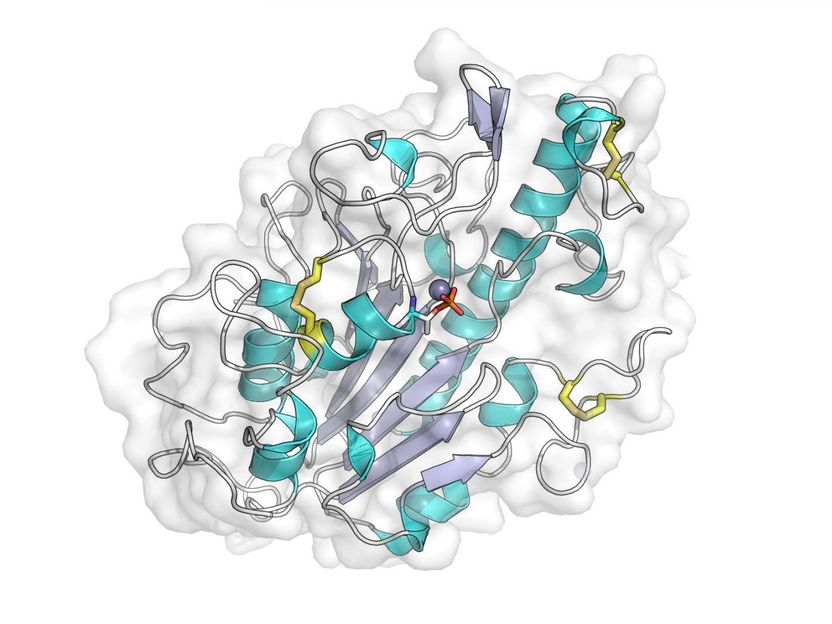BRAF-mutant mCRC phase III trial initiated
Merck partners with Array BioPharma and Pierre Fabre
Merck announced with Array BioPharma Inc. and Pierre Fabre, the initiation of a prospective, randomized, global Phase III clinical trial of BRAF-mutant metastatic colorectal cancer (mCRC), investigating a new combination of Erbitux (cetuximab), a standard-of-care treatment for RAS wild-type mCRC, plus encorafenib with or without binimetinib. The BEACON CRC (Binimetinib, Encorafenib And cetuximab Combined to treat BRAF-mutant Colorectal Cancer) trial will assess the efficacy and safety of these two novel combinations in patients with BRAF-mutant tumors, compared with investigator’s choice of Erbitux plus irinotecan or Erbitux plus FOLFIRI.
“This trial looking specifically at BRAF-mutated tumors exemplifies our ongoing commitment to exploring Erbitux as an ‘anchor’ treatment in combination with other therapies,” said Luciano Rossetti, Executive Vice President, Head of Global Research & Development at the biopharma business of Merck. “There is a clear need for effective treatment regimens for the BRAF-mutant mCRC population; the results of the BEACON CRC trial will hopefully provide us with the prospective information we need to take us one step closer to achieving that goal.”
Colorectal cancer (CRC) is one of the most challenging types of cancers, with an estimated 10 percent of CRCs associated with an oncogenic mutation in the BRAF gene.1 Studies have observed that patients with BRAF-mutant mCRC have shorter progression-free survival and overall survival.2 Additional treatment regimens are needed that can effectively combat these cancers.
“Historical studies suggest that BRAF-mutant colorectal cancer patients who have progressed after first-line systemic treatment have an estimated median overall survival of less than 6 months,” said Dr. Josep Tabernero, MD, PhD, Head of Medical Oncology and the Institute of Oncology at Vall d’Hebron University Hospital. “The BEACON CRC trial will explore innovative combinations which have the potential to offer new treatment options to these patients, who currently have few good choices remaining.”
“We are pleased to join Merck on this innovative trial for patients with BRAF-mutant metastatic colorectal cancer,” said Victor Sandor, MD, chief medical officer of Array BioPharma. “The encouraging results from our Phase II study suggest that concurrent inhibition of EGFR and enzymes in the MAPK signaling pathway has the potential to improve outcomes for this patient population, and we look forward to the results of this further investigation.”
Approximately 650 patients are expected to be enrolled by 2018 and, after a lead-in period to assess the safety and tolerability of Erbitux plus encorafenib (BRAF inhibitor) and binimetinib (MEK inhibitor), will be randomized to receive one of the two novel combinations, or investigator’s choice. The primary endpoint of the trial is overall survival. Key secondary endpoints include progression-free survival, objective response rate, duration of response, safety and tolerability. The trial will also assess health-related quality of life.
Most read news
Topics
Organizations
Other news from the department research and development

Get the life science industry in your inbox
By submitting this form you agree that LUMITOS AG will send you the newsletter(s) selected above by email. Your data will not be passed on to third parties. Your data will be stored and processed in accordance with our data protection regulations. LUMITOS may contact you by email for the purpose of advertising or market and opinion surveys. You can revoke your consent at any time without giving reasons to LUMITOS AG, Ernst-Augustin-Str. 2, 12489 Berlin, Germany or by e-mail at revoke@lumitos.com with effect for the future. In addition, each email contains a link to unsubscribe from the corresponding newsletter.
Most read news
More news from our other portals
Last viewed contents
On_the_Origin_of_Species

Distribution of COVID-19 vaccines with delivery drones - Wingcopter raises $22M to advance technology leadership in drone delivery, announces serial production
Hip_(anatomy)
Scientists identify FLT3 gene as a valid therapeutic target in acute myeloid leukemia
Gastric_bypass_surgery






















































